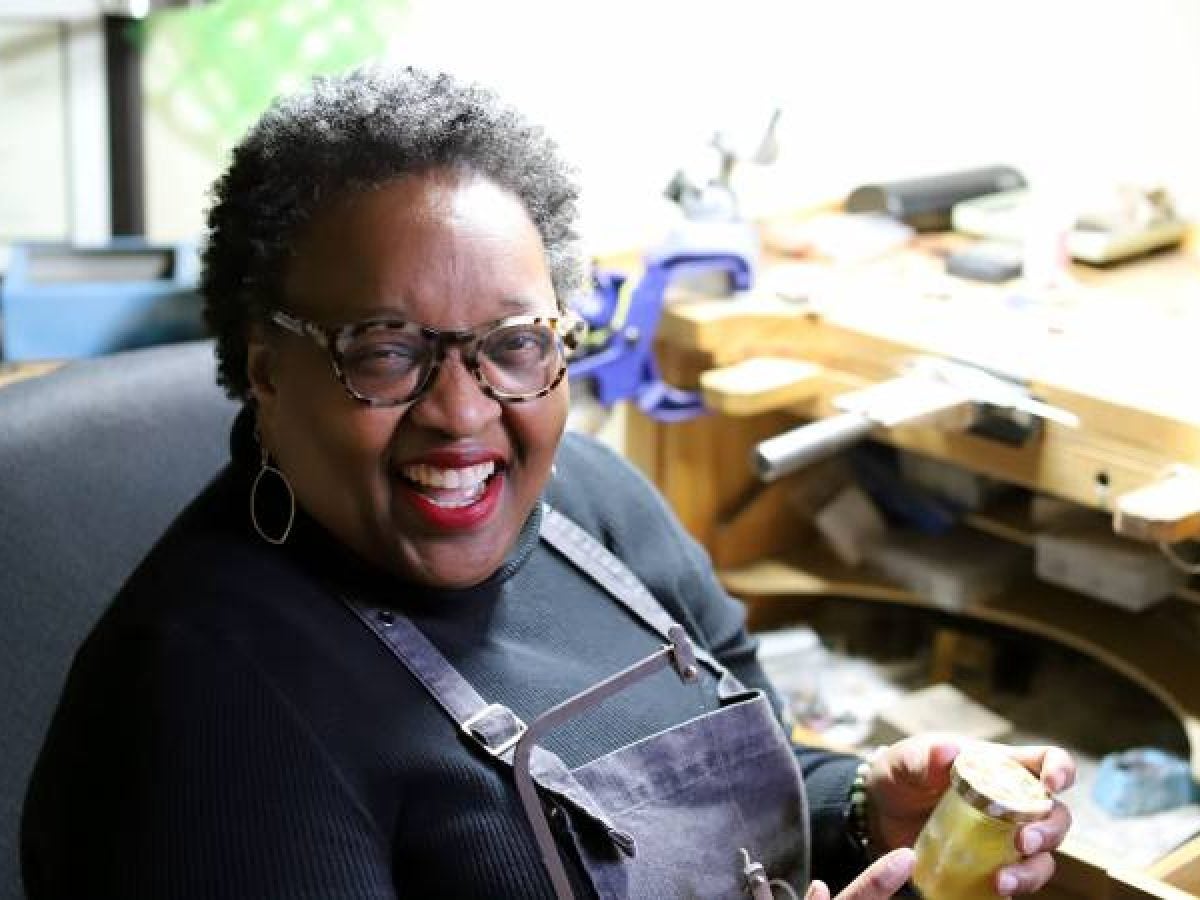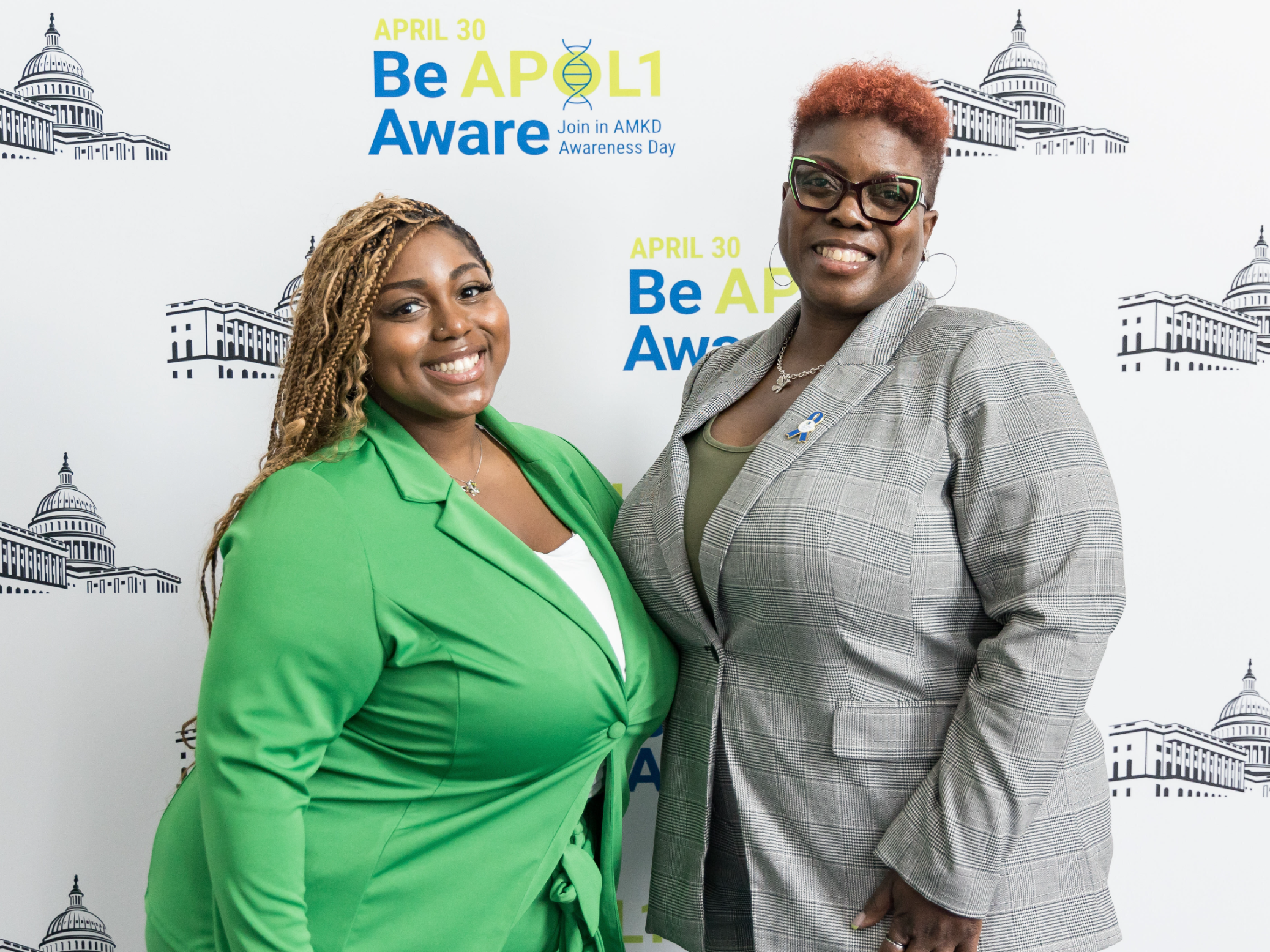
When Karen Smith decided to travel to Senegal for a metalsmith apprenticeship, the self-taught metal artist didn’t realize how much she would have to overcome while in the West African country.
Not only was the program one of the most rigorous in the world, but it was also extremely exclusionary. In the heavily Muslim country, the saying goes “women don’t wield the hammer,” so Smith was often isolated and sometimes mocked as the only woman metalsmith artist in the apprenticeship.
But the Brooklyn, NY native wasn’t deterred. She not only completed the program but took what she learned back home to Black women and girls that wanted to learn the trade.
In 2019, she started her non-profit, We Wield the Hammer, a metalsmith training program for women and girls of African descent. Each quarter, We Wield the Hammer teaches the fundamentals of metalsmithing; the 8-week course is designed to train students in the process of fabrication using precious metals, beginning with copper and brass and graduating to sterling and fine silver. Under the tutelage of trained Black female metal artists, students learn the art to create a variety of objects including but not limited to jewelry, small vessels, and utilitarian objects. Upon completion of the program, graduates are prepared and encouraged to then apprentice with local jewelers, continue their education by zeroing in on a specialty, deepening their study in forging and fabricating or even starting their own businesses.
And these businesses are very lucrative. Metalsmiths have the potential to earn six figures and We Wield the Hammer wants Black women to take full advantage.
Smith sat down with Essence to talk about her experience in Senegal, why she decided to launch the unique apprenticeship program and how she’s aiming to center her own art in the process.
Why did you go to Senegal to learn more about metal work instead of pursuing a program in the US?
Smith: Well, there wasn’t really a program offered in the US. And the best was in Senegal.
I am a self-taught metal artist, which means for me, that I always had a level of insecurity when held up against other artists that were formally trained in the area. I really decided to educate myself in metal work when I got a commission for an 18k gold wedding band. I’d never worked with white gold before, but I said ‘yes’ because I love love. Once the customer dropped off the deposit, I realized that the price would barely cover the price of the materials, so I needed to learn more about the practice .
After doing some research, I decided the best place to learn about metalwork would be Senegal.
What prompted you to share what you learned with other women? Why did you start We Wield the Hammer?
Smith: Part of the reason I’m on the planet is to be a teacher. This art form has changed my life. I never thought this would be what I created a life around. I could’ve gone the formal route, but the cost is prohibitive. I wasn’t in a position to spend $30,000-$40,000 on a program. So, if I can make a way for others to do what they love at a fraction of what others charge, I’m fulfilling my purpose.
Since last year’s social justice uprising, has there been an uptick in interest?
Smith: Yes, and that’s why I’m exhausted {laughs}. We’ve received lots of support and were able to open the new studio space in Durham, NC. But what I’m learning is a lot of that interest from last year was mostly performative. Once the Black squares on social media disappeared, so did the support.
It showed me what ‘slacktivism’ looks like. It’s not a term that I coined, but it really encapsulates what I’ve experienced over the last several months. I like that it’s called that because it highlights the very bare minimum people do to call out injustice, but you do absolutely nothing about it. But, yes, a large number of people that reached out to me last year, I have not heard from again. And those I have had conversations with have offered to copy my program and resituate it in the Pacific Northwest, where there’s more funding and access. But that’s not where it needs to be. Why would I allow you to take my concept, curriculum and research and move it to a place where it can’t touch those who need it most?
I’m more committed to aligning myself with those who are serious about making a change. For example, I see young people that have put their lives on the line in a way that scares me but also buoys my spirit.
This last year has been exhausting for me because some people actually grappled with what it means to be Black. I have been retraumatized this year.
What has been your refuge through all of that?
Smith: I heavily rely on my Buddhist practice and meditation. But I really want to take a vacation (laughs). I’m looking forward to 2022 to focus on my work, wholesale my own wearable art and build We Wield the Hammer.
I come from the “each one teach one” school of thought. My hope is that women come out of this program as multi-millionaire artists or jewelers.
I don’t have any children but I’m still responsible for uplifting the community and making beautiful things.









